- Home
- Franz Kafka
The Great Wall of China Page 18
The Great Wall of China Read online
Page 18
My favourite example in this connection is that of the aerial dogs. The first time I heard of one I laughed, I simply refused to be persuaded. What? There was supposed to be a diminutive type of dog, not much bigger than my head, even at an advanced age no bigger than that, and this dog, being of course feeble and to all appearances an artificial, immature sort of product with an excessively well-tended coat, incapable of making an honest jump, this dog was supposed, so the story went, to move about for the most part high in the air, performing no visible work up there, but simply resting? No, to try to convince me of that sort of thing was to exploit the open-mindedness of a young dog altogether too much, I thought. But shortly after that I heard an account of another aerial dog from a different source. Was there a conspiracy to make a fool of me? But then I saw the dog musicians, and from that day on I considered all things possible, no prejudices restricted my mental capacity; I investigated the most absurd rumours and followed them up as far as I could; in this absurd world the absurdest things seemed to me more probable than the reasonable ones, and a particularly rich field for my researches. So it was with the aerial dogs. I discovered a great many things about them; I must admit that to this day I have not succeeded in seeing one, but of their existence I have long been firmly convinced, and they occupy an important place in my picture of the world. It is, of course, not the artistic accomplishment that sets me thinking in this case, any more than it usually is. It is wonderful – who can deny it? – that these dogs are capable of floating in the air; in my astonishment at that I am at one with my fellow dogs. But far more wonderful to my mind is the absurdity, the silent absurdity of these curious individuals. Generally speaking no reason for it is offered; they float in the air, and that is as far as it goes; life continues on its way, now and then there is some talk of art and artists, but that is all. But why, O most benevolent race of dogs, why do these dogs float? What sense is there in their occupation? Why can one get no word of explanation out of them? Why do they float about up there, letting their legs, the pride of dogs, grow stunted, why are they cut off from the nourishing earth, why do they sow not, and yet they reap, indeed are exceptionally well provided for, according to all accounts, and at the expense of the dog community too?
I can flatter myself that my questions have brought a little life into these matters. People are beginning to put forward reasons, to weave some kind of rational explanation together; they have made a beginning, even though they will get no further. But that is something after all. And in the process we do glimpse, if not the truth – for never will we get that far – at least something of the profound labyrinth of falsehood. For the fact is that all the absurd phenomena of our life, and the most absurd ones in particular, are susceptible of a rational explanation. Not wholly of course – that is the diabolical joke – but sufficiently for one to be able to ward off embarrassing questions. Take the aerial dogs as an example once again. They are not haughty, as one might imagine at first, but rather exceptionally dependent on their fellow dogs; if one tries to put oneself in their position one can understand that. For they must do what they can, even if they cannot do it openly – since that would be an infringement of their duty to remain silent – they must do what they can by other means to seek forgiveness for their way of life, or at least to distract attention from it, to make people forget about it – and they do this, so I am told, by an almost unbearable amount of chatter. They have forever some tale to tell, whether it is about their philosophical reflections, with which, since they have quite renounced all physical exertion, they can occupy themselves continually, or whether it is about the observations that they make from their exalted station. And despite the fact that they are not very remarkable for their intellectual power, which is quite understandable in view of their dissolute mode of life, despite the fact that their philosophy is as worthless as their observations, and that science can make hardly any use of what they have to offer, and is in any case not dependent on such miserable material, in spite of all this one is always being assured, when one asks what the point of the aerial dogs can be, that they contribute a great deal to science. ‘That is correct,’ one then says, ‘but their contributions are worthless and wearisome.’ The reply to that is a shrug, or a diversion, or annoyance, or laughter, and a little later, when you ask again, you learn once more that they contribute to science, and finally, when you are next asked the question yourself, unless you are very careful you give the same answer. And perhaps it is anyhow best not to be too obstinate and to submit, at least to tolerate such aerial dogs as already exist, though not to recognize their existence as justified, for that would be impossible. But more than that cannot be asked of one; that would be going too far; and yet it is asked of one for all that. One is asked to put up with a stream of new aerial dogs who are constantly appearing. It is not at all clear where they come from. Do they multiply by reproduction? Have they enough strength left for that? – they consist, after all, of not much more than a handsome coat, so what is there here to reproduce itself? But even supposing the improbable were possible, when could it take place? For one invariably sees them alone, sufficient to themselves up in the air, and if for once in a while they lower themselves to take a run it lasts only a moment or two, a few mincing steps and back they are again in strict solitude, supposedly absorbed in their thoughts, from which they cannot tear themselves away even with an effort, or so at least they say. But if they do not reproduce themselves, is it conceivable that there should be dogs who voluntarily renounce life at ground level, voluntarily become aerial dogs, and for the sake of comfort and a certain technical accomplishment actually choose that dreary, cushioned life up there? That is inconceivable; neither reproduction nor voluntary affiliation is conceivable. And yet the facts show that there are always new aerial dogs about; from which one must conclude that, despite what seem to our mind insurmountable obstacles, no species of dog, once extant, and however curious it may be, ever dies out, or at least not easily, at least not without there being something in every species which puts up a long and successful resistance.
If this holds good for such an out-of-the-way and senseless species as the aerial dogs, so very strange in external appearance and so ill-fitted for life, must I not accept it as true for my own type as well? Besides, outwardly I am not strange in the least, just an ordinary middle-class dog such as is quite common, anyway in this neighbourhood; in no way especially outstanding, in no way especially despicable; I was even a distinctly handsome dog in my youth, and to some extent still in maturity, so long as I attended to my appearance and took plenty of exercise; my front view was particularly admired, my slim legs and the fine way I carried my head, but also much approved was my grey, white and yellow coat that just curled at the tips; nothing of this is at all strange, the only thing that is strange is my nature, and even this, as I must never allow myself to forget, has its foundation in the general nature of dogs. Now if not even the aerial dog is wholly isolated, if here and there in the great world of dogs there is always another one of his type to be found, and if they can even conjure new generations out of nothingness, then I too can live in the confidence that I am not quite forlorn. The lot of those who belong to my own type must certainly be unusual, and their existence can never be of visible help to me, if for no other reason than that I can scarcely ever hope to recognize them. We are the dogs to whom silence is oppressive, who want to break the barrier of silence because we are positively gasping for air; the others seem content with silence, though that is only what it seems, just as in the case of the musical dogs, who seemed to make their music so calmly but were really intensely agitated; yet the illusion is strong, one tries to grapple with it and it mocks every attempt.
Then how do the dogs of my own type manage? What form do their efforts to go on living despite everything take? They may take various forms. My own efforts, so long as I was young, took the form of asking questions. So I might perhaps stick to those who ask a lot of questions, and there I would hav
e my comrades. And indeed that is what, with great self-control, I tried for a time to do; great self-control, because of course I am primarily concerned with those who are supposed to answer; the ones who are constantly butting in with questions, to which I usually have no answer myself, I find repellent. Moreover, who is not fond of asking questions when he is young, so how am I going to pick out the genuine questioners from among so many? One question sounds like another; it is the intention that counts, but that is often hidden even from the questioner. And besides, asking questions is a characteristic of the dog race, they all ask them together in a confused babble; it is as if by doing so they were trying to obliterate all trace of the genuine questioners. No, my real comrades are not to be found among the questioners, among the young, any more than they are to be found among the old and silent to whom I now belong. But what good are all these questions anyhow, for I have failed with them completely; probably my comrades are far wiser than me, and employ excellent means of a quite different sort to endure this life, means which, however, as I feel bound to add, though they may perhaps at a pinch help them, soothe them, lull them, and effect some change in their character, remain on the whole just as impotent as my own, for no matter where I look I see no sign of their success. I am afraid that the last thing by which I shall be able to recognize my comrades is success.
But where, then, are these comrades of mine to be found? Yes, that is my complaint, that is precisely my trouble. Where are they? Everywhere and nowhere. Perhaps my next-door neighbour, only three jumps away, is one of them; we often call over to each other and he comes across to visit me too, though I do not go to him. Is he my comrade? I do not know, I certainly see no sign of it in him, but it is possible. It is possible, but all the same nothing is more improbable; when he is away I can, for my own amusement, by using my imagination to the full, discover much about him that is suspiciously familiar, but when he stands before me all my inventions become ridiculous. An old dog, a little smaller even than myself – and I am hardly medium size – brown, short-haired, with a wearily drooping head and a shuffling gait, aggravated by the fact that he trails his left hind leg after him a little, as a result of some illness. For a long time now I have kept closer company with him than with anyone else; I am glad that I can still put up with him tolerably well, and when he goes off I shout the friendliest things after him, but it is not out of affection, it is in anger at myself, because when I observe him I merely find him quite repulsive again, as he goes slinking off with his foot dragging behind and his much too low hindquarters. Sometimes it seems to me as if I was trying to deride myself by privately calling him my comrade. Nor does he show signs of comradeship when we talk together; certainly he is clever, and well enough educated as things go in these parts, I could learn a lot from him; but is it cleverness and education that I am looking for? We converse usually about local questions, and it astonishes me – my isolation has made me more clear-sighted in this respect – how much intelligence is needed even by an ordinary dog, even in circumstances that are generally not too unfavourable, just to stay alive and to protect oneself from the worst of the usual dangers. Science, it is true, provides the rules to follow, but to understand them even remotely and in rough outline is not easy, and once one has understood them the real difficulty begins, namely to apply them to the local conditions – here almost nobody can help, almost every hour brings new tasks, and each new patch of earth its own special ones; for anyone to assert that he has settled down somewhere for good, and that his life can more or less take care of itself, is quite impossible; it is even impossible for me, though my needs shrink literally from day to day. And all this endless labour – to what end? To none save to bury oneself ever deeper in silence, so deep that no one will ever be able to drag one out of it again.
People often extol the universal progress made by the dog race throughout the ages, and one presumes that what they have chiefly in mind is the progress of science. Certainly science progresses, its advance is irresistible, it even progresses at an accelerating speed, ever faster, but what is there praiseworthy about that? It is as if one were to praise someone for growing older with increasing years and for approaching death ever more rapidly in consequence. That is a natural and moreover an ugly process in which I can find nothing to praise. I can see nothing but decline everywhere, though by that I do not mean that earlier generations were essentially better than ours, they were merely younger, that was their great advantage, their memory was not yet so overburdened as ours is today, it was easier to get them to speak out; and even if no one actually succeeded in doing so the possibility of it was greater, and it is just this greater sense of possibility that stirs us so deeply when we listen to those old, yet really so childishly simple stories. Here and there we catch a strangely suggestive phrase and we would almost like to leap to our feet, if we did not feel the weight of the centuries upon us. No, whatever objections I may have to my own age, earlier generations were no better than the recent ones, indeed in a sense they were far worse and far weaker. It is true that even in those days wonders did not walk the streets openly for anyone to lay hands on, but – how else can I put it? – dogs were not yet as doggish as they are today, the fabric of the dog community was still loose, the true word could still at that time have intervened, have determined or re-determined the whole structure, altering it at will, transforming it into its opposite, and that word was there, or at least was near, it was on the tip of every tongue, everyone might discover it; and today, what has become of it? – today one may tear one’s insides out and still not find it. Our generation is perhaps lost, but it is more innocent than that generation of old. The hesitation of my generation I can well understand, indeed it is no longer a hesitation at all, it is the forgetting of a dream dreamed a thousand nights ago and a thousand times forgotten; who will wax angry with us on account of this thousandth forgetting? But I think I can also understand the hesitation of our forefathers; probably we should not have acted otherwise, indeed I almost feel inclined to say: it is well for us that we were not the ones who had to take the guilt upon us, that instead we were permitted to hasten towards death in almost guiltless silence, in a world that others have already darkened. When our forefathers erred, they probably had no thought of an endless aberration, they could literally still see the crossroads, it was easy to turn back whenever they pleased, and if they hesitated to turn back it was merely because they wanted to enjoy their dog’s life for a little while longer; it was not yet even a genuine dog’s life, but it already seemed to them intoxicatingly beautiful, so what would it be like a little later, just a little bit later? – and so they went on straying further. They did not know what we can now sense as we contemplate the course of history: that change begins in the soul before it shows in our lives, and that by the time they began to enjoy their dog’s life they must already have had a real old dog’s soul, and were by no means still so near their starting-point as they thought, or as their eyes tried to persuade them while they revelled in all the doggish pleasures. Who can still speak of youth today? They were the genuinely youthful dogs, but their sole ambition was unfortunately directed towards becoming old dogs, something which they could indeed not fail to achieve, as all succeeding generations have proved, and our own – the last one – most clearly of all.
Naturally I do not talk to my neighbour of all these matters, but I am often forced to think of them when I am sitting opposite him, typical old dog that he is, or burying my nose in his coat which already has something of the whiff of old hides. It would be pointless to talk about these things anyway, either with him or with anyone else. I know what course the conversation would take. He would have a few small objections to raise here and there, but finally he would agree – agreement is the best weapon – and the matter would be buried; so why bother to exhume it at all in the first place? And yet all the same I do perhaps have a deeper understanding with my neighbour, one that goes beyond mere words. I feel bound to go on asserting this, even though I
have no evidence for it and am perhaps merely the victim of a simple delusion, because he has been my only companion for so long and I must therefore cling to him. ‘Are you perhaps my comrade after all? In your own way? And are ashamed because you have failed in everything? But look, it has been the same with me. When I am alone I howl about it; come, it is sweeter to howl together’ – thus do my thoughts often run, and I gaze at him fixedly meanwhile. On these occasions he does not lower his glance, but he remains inscrutable; he looks at me dully, wondering why I am silent and have broken off our conversation. But perhaps that very look is his way of questioning me, and I disappoint him just as he disappoints me. In my youth, if other questions had not been more important to me then, and I had not been amply sufficient to myself, I might perhaps have asked him straight out and received some lame word of agreement, that is to say less than I get today from his silence. But are we not all just as silent? What is there to prevent me from believing that everyone is my comrade, that I do not merely have here and there some companion in my researches, who is sunk and forgotten along with his infinitesimal achievements, and whom I have no means of reaching through the darkness of the ages or the throng of the present; why should I not rather believe that all dogs from the beginning of time are my comrades, all of them striving in their own way, all unsuccessful in their own way, all silent or tiresomely prattling in their own way, just as this hopeless quest entails? But in that case I need not have isolated myself at all, I could have stayed quietly among the others, I had no need to push my way out like a naughty child through the ranks of the grown-ups; for they want to find a way out just as much as I do, and all that disturbs me about them is their common sense, which tells them that no one succeeds in getting out and that all thrusting is foolish.

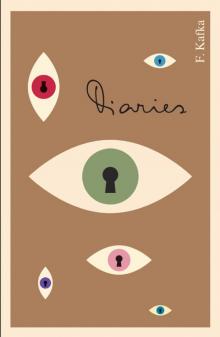 Diaries of Franz Kafka
Diaries of Franz Kafka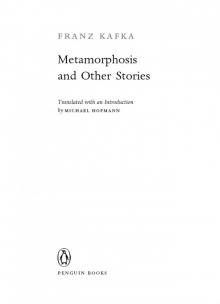 Metamorphosis and Other Stories
Metamorphosis and Other Stories The Castle: A New Translation Based on the Restored Text
The Castle: A New Translation Based on the Restored Text The Complete Stories
The Complete Stories In the Penal Colony
In the Penal Colony The Trial
The Trial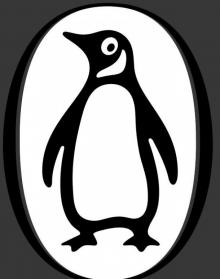 Amerika
Amerika The Burrow: Posthumously Published Short Fiction
The Burrow: Posthumously Published Short Fiction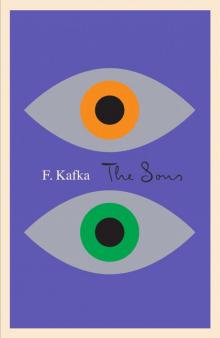 Sons
Sons Letters to Milena
Letters to Milena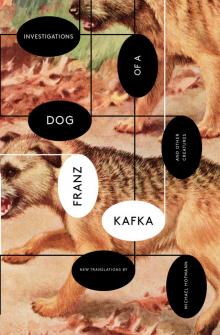 Investigations of a Dog: And Other Creatures
Investigations of a Dog: And Other Creatures Collected Stories
Collected Stories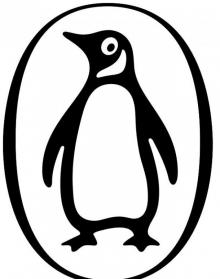 The Great Wall of China
The Great Wall of China The Burrow
The Burrow The Castle
The Castle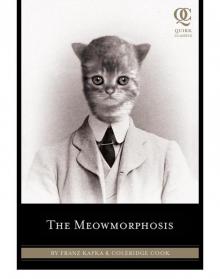 The Meowmorphosis
The Meowmorphosis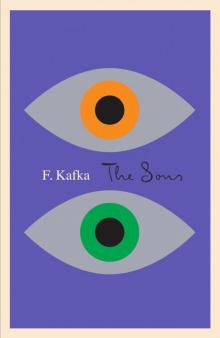 The Sons
The Sons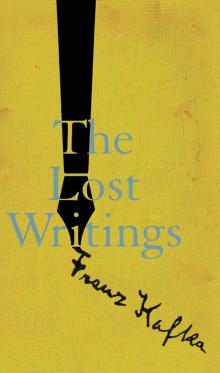 The Lost Writings
The Lost Writings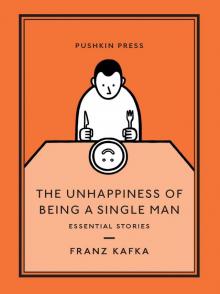 The Unhappiness of Being a Single Man
The Unhappiness of Being a Single Man Amerika: The Missing Person: A New Translation, Based on the Restored Text
Amerika: The Missing Person: A New Translation, Based on the Restored Text The Burrow: Posthumously Published Short Fiction (Penguin Modern Classics)
The Burrow: Posthumously Published Short Fiction (Penguin Modern Classics)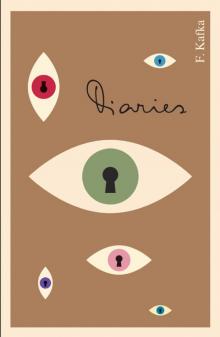 The Diaries of Franz Kafka
The Diaries of Franz Kafka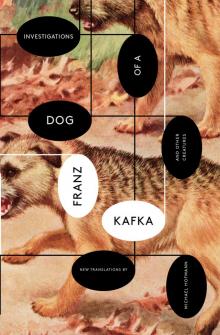 Investigations of a Dog
Investigations of a Dog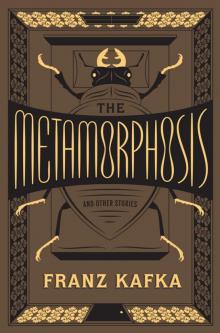 The Metamorphosis and Other Stories
The Metamorphosis and Other Stories The Trial: A New Translation Based on the Restored Text
The Trial: A New Translation Based on the Restored Text